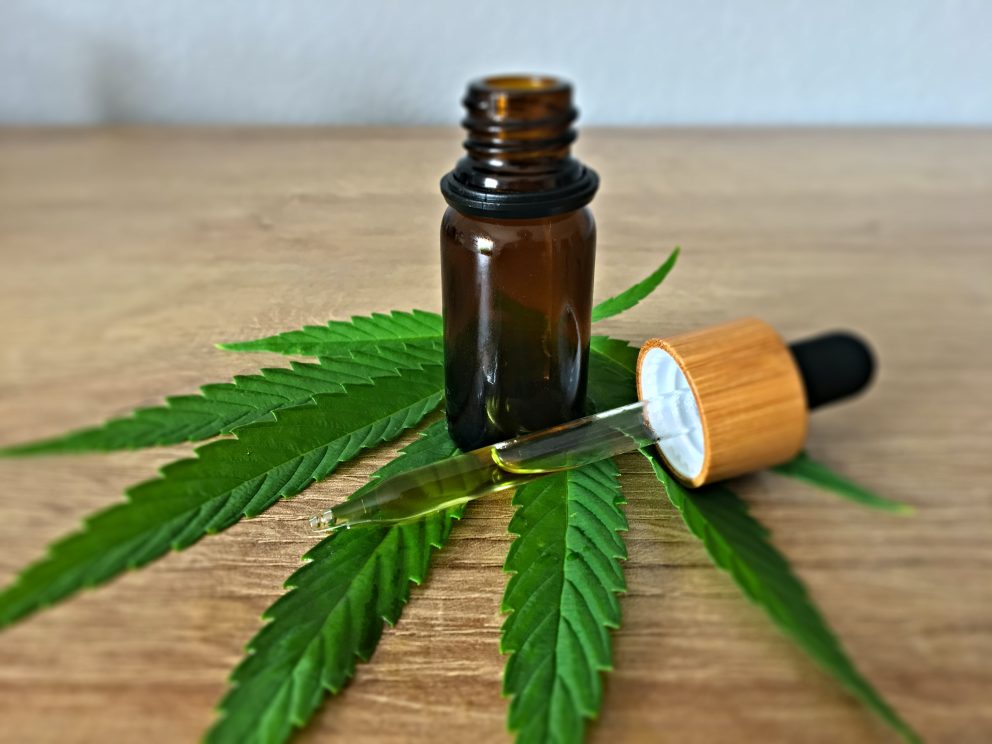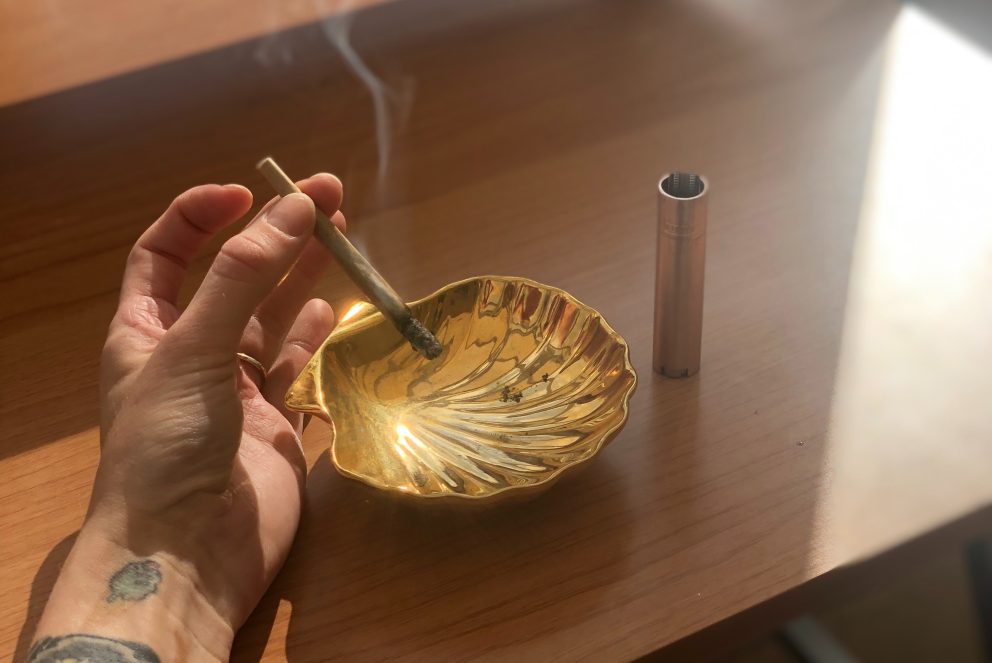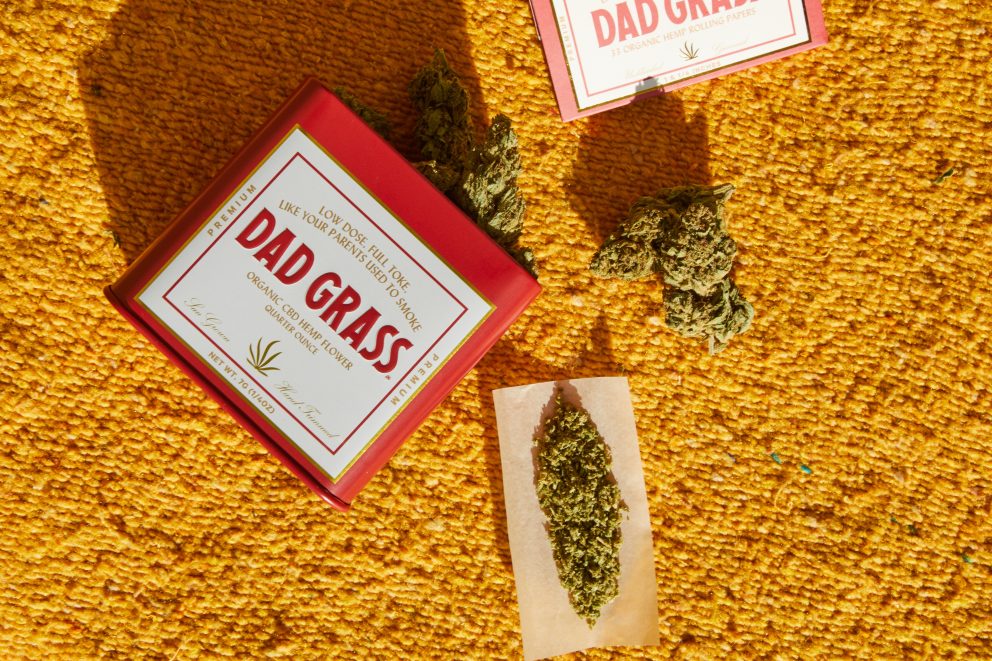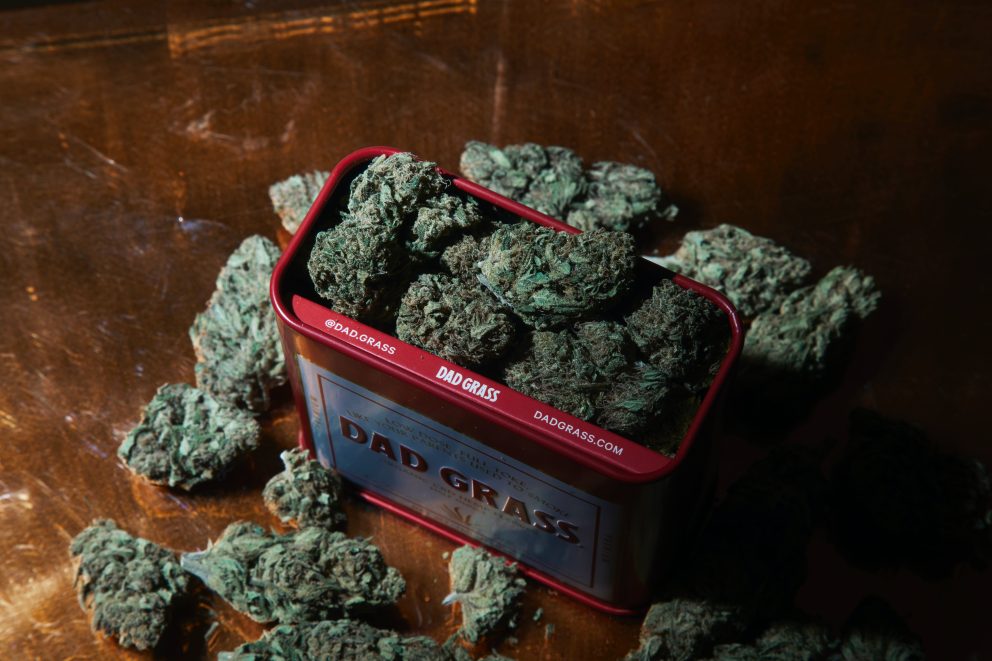What is CBDV, and What are the Differences Between CBDV vs. CBD?

Photo by CBD Infos
Cannabis legalization has done far more than enable people to smoke weed recreationally in various parts of the U.S.
It’s also opened the door for further research, and in the ever-expanding world of cannabinoids, cannabidivarin, or CBDV, is just one of more than 100 cannabinoids found within the marijuana plant.
But what is CBDV, and what benefits can it provide you with? Here’s everything you need to know about the latest hot cannabinoid acronym.
What is CBD-V?
Cannabidivarin is a minor cannabinoid found within the Cannabis Indica plant.
Unsurprisingly, when comparing CBDV vs. CBD, they are similar in structure. In fact, Cannabidiol, or CBD, has the same molecular arrangement. The only difference is that traditional CBD has two fewer carbons on its side chain.
Although this may not sound like a big deal, this subtle change makes a big difference clinically. As we enhance our understanding of different cannabinoids within pot, the scientific community’s understanding has progressed beyond CBD and THC.
Despite being a common cannabinoid, research has discovered that it’s only found in minute amounts naturally. Core CBDV strains originate from Asia and Africa, meaning they’re likelier to fall into the Indica category.
Moreover, CBD-V tends to be found within Indica strains that naturally contain lower levels of THC. If we compare CBDV vs. CBD, research shows that when one is available in higher amounts, so is the other.
Apply for a Medical Marijuana Card Online Today
Join over 100,000 patients who have chosen Green Health Docs as their medical cannabis doctors. We have a 99% approval rate and offer a 100% money back guarantee!
How Does CBDV Work?
Understanding what is CBDV is only the first step to understanding its effects. Unlike other lesser-known cannabinoids, cannabidivarin was discovered in 1969 by a team of scientists.
Initially, they were researching the potential for an autism cure, but marijuana prohibition worldwide due to the War on Drugs limited their research.
So, what do we know about how it works?
To some extent, CBDV works like other phytocannabinoids, including delta-9 THC, the primary psychoactive component in marijuana. But what’s interesting is that it can bind to receptors outside of the endocannabinoid system.
Scientists have already observed that it can bind to the Transient Receptor Potential (TRP) channels, which have links to anti-seizure mechanisms caused by Rett Syndrome.
But if you compare CBD vs. CBDV, they may differ but also have many similarities. For example, no research shows that CBDV can bind to cannabinoid receptors like CB1 and CB2 like THC can.
Despite this, it has shown potential for modulating cannabinoid receptors and influencing the uptake of THC. This is in line with how CBD interacts with the body.
Common CBDV Effects
Learning more about what is CBDV has enabled us to discover the benefits of this cannabinoid. So, what does CBDV do?
Although it’s just a minor cannabinoid, it is one of the most consequential ones that scientists have begun focusing on. In terms of the user experience, there’s no objective evidence to show that it will differ from CBD, meaning you can expect effects like:
- Reduced pain.
- A feeling of relaxation.
- Lowered anxiety.
- More comfort.
- Easier to fall asleep.
If you do smoke CBD medical cannabis or prefer strains containing high concentrations of this cannabinoid, what side effects might you encounter?
- Dizziness
- Diarrhea
- Upset stomach
- Fatigue
- Headaches
As you can see, it shares most of the same effects as CBD. It’s also safe and well-tolerated. To illustrate how safe it is, a study found that it would take 14,416 mg of CBD for a healthy person of 150 lbs to put themselves at risk.
In other words, as a derivative of CBD, you’ve got nothing to worry about when consuming this compound.

Photo by HighBabe
Does CBDV Get You High?
No, it’s impossible to get high regardless of how much of this compound you smoke. It shares this same characteristic with CBD, which is also non-psychoactive.
Since pure CBDV can already be extracted and isolated from the marijuana plant, future products containing this compound are safe to consume without worrying about getting stoned.
What are the Benefits of CBDV?
If comparing CBDV vs. CBD, it becomes clear that as a minor cannabinoid, it doesn’t have any noticeable effects on its own. Instead, CBD and THC remain the primary visible components of marijuana.
Despite this, it doesn’t mean that this cannabinoid has no effect at all. On the contrary, preliminary research has pointed toward various potential benefits. So, what is CBDV good for?
Autism Symptom Treatment
Scientists are actively researching CBDV as a potential treatment related to Autism Spectrum Disorder (ASD).
ASD is a neurodevelopmental condition with no known cure for its symptoms. Some of these symptoms include:
- Repetitive behaviors
- Repetitive thought patterns
- Trouble socializing
- Difficulty communicating
- Limited interests
Most people are diagnosed around age three, and it’s believed that genetic factors are likely to play a role in its development.
One of the significant CBDV benefits uncovered in early research is that this cannabinoid could counteract symptoms, including communication problems. A study even found that it could increase brain GABA levels to reduce acute anxiety.
Moreover, this same research has already progressed to Phase III trials.
Intractable Epilepsy Treatment
Intractable epilepsy, also known as drug-resistant epileptic seizures, are types of seizures that cannot be controlled through conventional medication. Before the approval and release of CBD-powered Epidoliex, research also focused on CBDV.
In early studies, it was found that this minor cannabinoid rivaled CBD as an anti-convulsant. It’s believed that this is due to the cannabinoid’s effect on the vanilloid receptor. This includes success in reducing the onset of chemically induced seizures.
Nausea Treatment
Nausea is one of the body’s defensive mechanisms to tell the brain that it needs to expel something that has been ingested. It’s what keeps us safe from potentially dangerous supplements remaining in the body.
However, scientists have discovered CBDV’s potential as an anti-nausea agent. During a study to find out if it could induce nausea in rats, it was discovered that it had the opposite effect.
Duchenne Muscular Dystrophy (DMD) Symptom Treatment
DMD is a genetic condition with no known cure, but several medications can control symptoms. Interestingly, research from the National Research Council in Italy found that the non-psychoactive compounds of cannabis plants could provide hope.
Their research found that several cannabinoids, such as CBDV, reduced inflammation and promoted muscle fiber growth.
Rett Syndrome (RTT) Symptom Treatment
Perhaps the most significant area of interest regarding CBDV benefits is how it relates to the rare neurological disorder RTT. It’s known that it’s caused by a rare mutation in the MECP2 gene, which can result in a loss of speech and muscle coordination.
Sadly, this illness has no cure, and symptoms can result in a low quality of life. However, successful preclinical trials concentrating on mice have demonstrated that it can partially restore the ability to socialize and motor coordination.

Photo by Dad Grass
Which Strains are High in CBDV?
As already mentioned, Asian and African strains tend to be the go-to options if you’re looking for minor cannabinoids like CBDV.
Here are our top picks for weed strains with noticeably high minor cannabinoid concentrations.
Forbidden V
Forbidden V bursts with delicious flavors, including a 1:1 CBD to CBDV ratio. Despite this relatively high ratio, it implies a limited amount of CBD to begin with.
Still, its highly balanced terpene profile makes this an impeccable strain for cannabis users looking to embrace the benefits of minor cannabinoids while remaining completely conscious.
Pine Walker
Pine Walker differs from your standard marijuana because it’s a hemp variety. As far as hemp-based strains go, none possess higher concentrations of this cannabinoid than this. This is because this is an offspring of the more famous Special Sauce strain.
As you can guess from the name, Pine Walker brings an intense aroma and flavor of pine to the table, alongside some juicy lemon notes.
Royal CBDV
Royal CBDV is a strain developed for the specific purpose of emphasizing this cannabinoid.
As well as not making you high, it also possesses just 5% CBD, making it a strain that suppresses the body-heavy effects of Indica cannabis.
Euphoria
Euphoria acquires its name from the tremendous feeling of euphoria you’ll feel while smoking this.
Unlike similar strains, Euphoria contains enough THC to produce the euphoric effect without making you high due to the equal amounts of CBD.
Painkiller XL
Painkiller XL possesses an equal balance of CBD and THC, around 9%. Although CBD is responsible for most beneficial effects, it’s still a strain bursting with minor cannabinoids.
If you’re looking to compare CBDA vs. CBDV, this could be the strain for you. Additionally, since it’s produced from seeds containing 75% Indica to 25% Sativa, this citrusy strain will help you unwind without getting couch-locked.

Photo by Dad Grass
What is the Difference Between CBDV vs. CBD?
Novices may expect to notice a difference when smoking a specialist strain, but the similarities between these compounds mean users are unlikely to notice any difference.
Instead, the differences can only be found from a clinical perspective, hence why CBDV has no unique effects, as defined above.
Structure
Both compounds are almost precisely the same in chemical structure. However, the difference is that varin cannabinoids have two fewer carbon atoms on their side chains.
It may seem like a minimal difference, but it is, so users won’t see any changes to their normal smoking experience.
On the other hand, these two fewer carbon atoms still make this a distinct cannabinoid with its own set of benefits.
Effects
Most anecdotal evidence points to subtle differences from smoking pure CBD. But no study has proven any of them.
Unfortunately, until we learn more about this minor cannabinoid, any differences may be down to the placebo effect, as there’s no evidence to show that it affects the brain dissimilarly to CBD.
Availability
This point is critical to the consumer. Although CBD products can be found online and in stores nationwide, it’s difficult to find dedicated CBD-V products.
Two reasons account for this lack of supply:
- Natural cannabis contains exceedingly small amounts of this naturally occurring compound.
- A lack of knowledge means there’s limited demand.
Conclusion
What is CBDV? It’s yet another minor cannabinoid that has received a spike in attention as research into other compounds within the cannabis plant accelerates. Unlike conventional cannabis, these products have no restrictions, making them legal to source anywhere.
However, if you live in a medical cannabis state, you may qualify for a medical marijuana card, allowing you to enter dispensaries and purchase fresh buds in your area. To find out whether you qualify, contact Green Health Docs today.
 This article has been reviewed by Dr. Anand Dugar, an anesthesiologist, pain medicine physician and the founder of Green Health Docs. Graduating from medical school in 2004 and residency in 2008, Dr. Dugar has been a licensed physician for almost 20 years and has been leading the push for medical cannabis nationwide.
This article has been reviewed by Dr. Anand Dugar, an anesthesiologist, pain medicine physician and the founder of Green Health Docs. Graduating from medical school in 2004 and residency in 2008, Dr. Dugar has been a licensed physician for almost 20 years and has been leading the push for medical cannabis nationwide.
